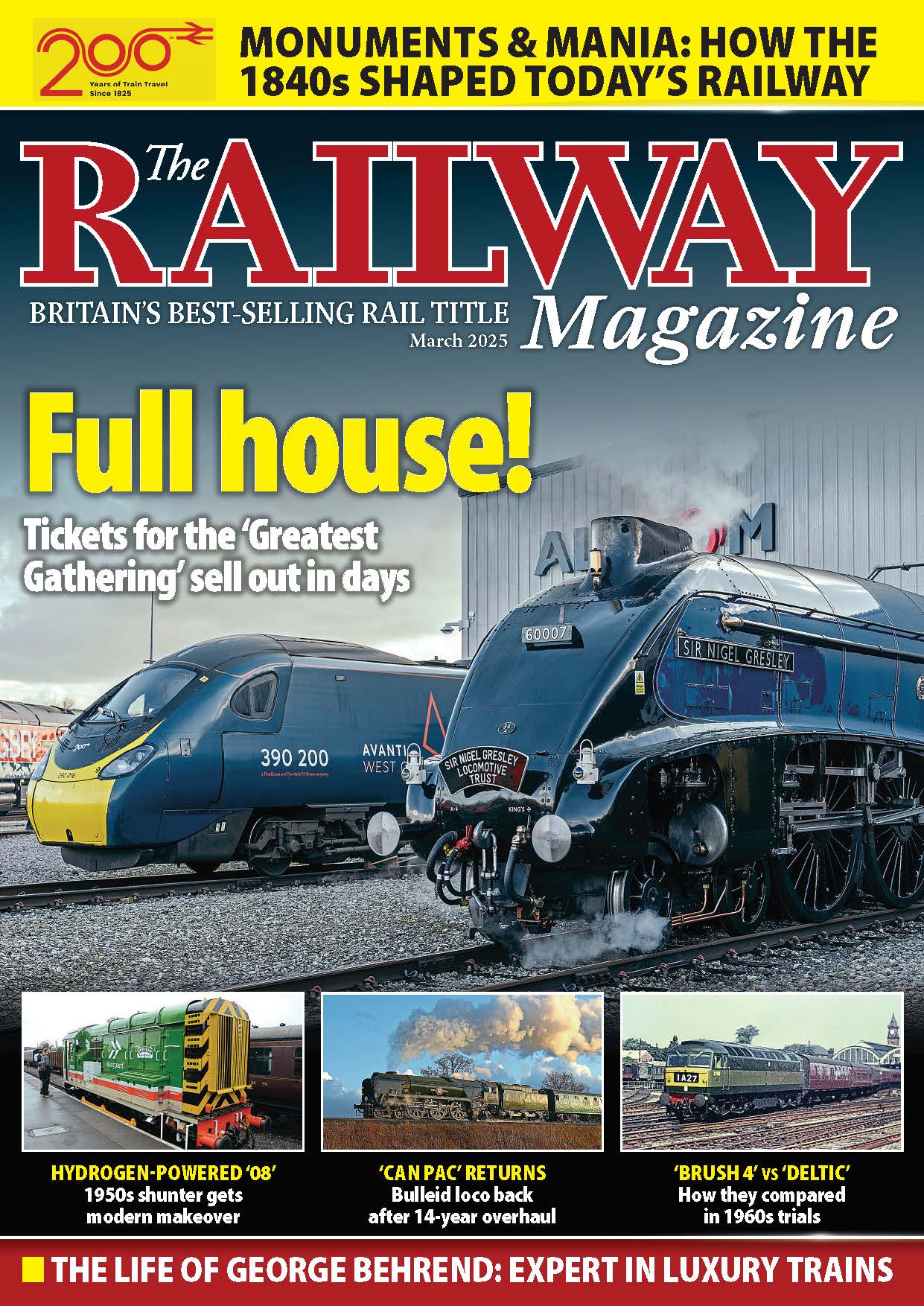Pausing HS2 work at Euston shows the Government “does not know what it is trying to achieve” with the station despite more than eight years of planning, MPs warned.

In a damning report, the Public Accounts Committee (PAC) urged the Department for Transport (DfT) to “finally establish” its expectations for the central London station.
HS2 Ltd – the Government-owned company responsible for building the high-speed railway – first proposed an 11-platform design for Euston in 2015, to be built in two phases.
Monthly Subscription: Enjoy more Railway Magazine reading each month with free delivery to you door, and access to over 100 years in the archive, all for just £5.35 per month.
Click here to subscribe & save
Following the recommendations of the Oakervee Review in 2020, the DfT instructed HS2 Ltd to change to a 10-platform, single-stage design in an attempt to make it simpler and cheaper.
In March, Transport Secretary Mark Harper announced work would be paused for two years as costs had ballooned to £4.8 billion compared with an initial budget of £2.6 billion.
The DfT has said it will use this period to determine the minimum requirements for the station and make decisions about what should be prioritised.
The PAC said: “Despite spending over eight years on planning and designing the HS2 Euston station, the department still does not know what it is trying to achieve with the station.”
The report described the £2.6 billion budget set in April 2020 as “completely unrealistic” for what the DfT wanted to deliver.
HS2 Ltd told the committee it set that budget in the expectation it would be revised given uncertainty around costs.
Later estimates reached £4.4 billion in June 2020 for the 11-platform design, and £4.8 billion in March for the 10-platform design.
Previous updates to Parliament on cost pressures at Euston did not disclose that construction costs could be significantly higher than expected, the committee stated.
The PAC called on the Government to provide greater transparency in its six-monthly progress reports to Parliament.
Committee chair Dame Meg Hillier said: “The HS2 Euston project is floundering. This is a multibillion-pound scheme – which has already caused major disruption to the local community – put on pause.
“The pause, ostensibly to save money, is not cost free. Mothballing and possible compensation for businesses which have lost work will all need to be added to the HS2 tally.
“The Government must now be clear what it is trying to achieve with this new station, and how it will benefit the public.
“Our report finds that a wildly unrealistic budget for HS2 Euston was set in 2020 in the expectation that it would be revised.
“The Government must demonstrate that it is not just repeating the same mistakes of unrealistic costings.
“HS2 Euston has shown us that forging ahead over-optimistically in an unclear direction is clearly not the right approach.”
The project involves integrating HS2 services with the existing mainline railway and London Underground.
HS2 trains are now not expected to run in to Euston until 2041 at the earliest, after initially being scheduled for 2026.
When the railway first opens between London and Birmingham – expected between 2029 and 2033 – its terminus in the capital will be Old Oak Common, in the city’s western suburbs.
A budget of £55.7 billion for the whole HS2 project was set in 2015.
But the target cost excluding the eastern leg of Phase 2b from the West Midlands to the East Midlands has soared to between £53 billion and £61 billion (at 2019 prices).
A DfT spokeswoman said: “We remain committed to delivering HS2 from Euston to Manchester in the most cost-effective way for taxpayers, which is why earlier this year we made the decision to rephase the construction of Euston to help balance the nation’s books and work on an affordable design for the station.
“The National Audit Office recently acknowledged this will provide time to put the station design on a more stable footing and we continue to work at pace to ensure the transformational benefits of HS2 are delivered to passengers by better connecting our biggest cities, supporting thousands of jobs and helping grow the economy.
“We note the recommendations made in the committee’s report and will respond to them in due course.”




